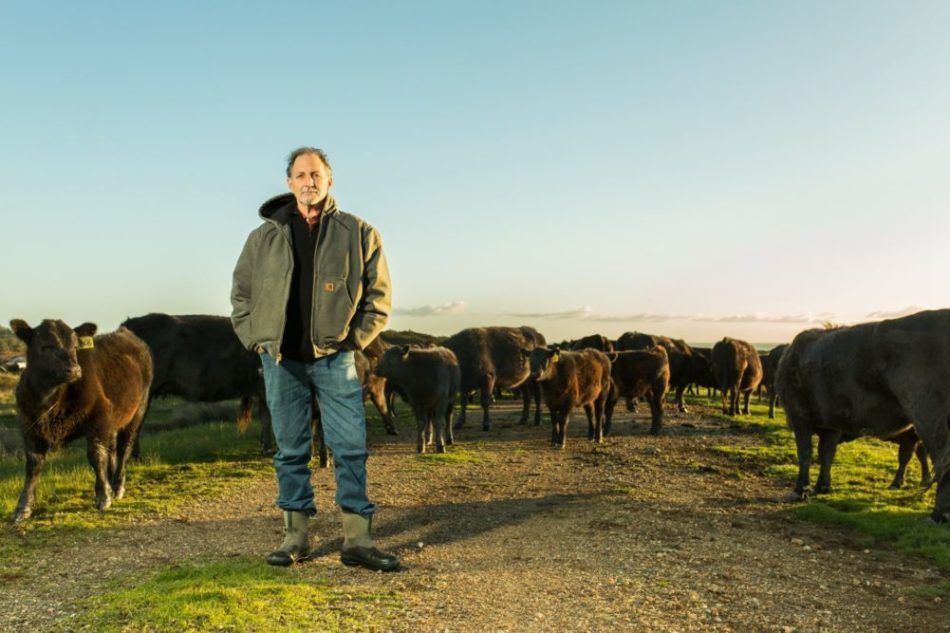In recent years, increasing attention has been paid to the use of antibiotics in conventional livestock production. Antibiotics provided at subtherapeutic doses promote growth while staving off disease, which can spread like wildfire in high-density confinement operations.
The use of antibiotics in livestock production has been linked to the increase in antibiotic-resistant bacteria — or ‘superbugs’ — that pose serious threats to human health. According to US Food & Drug Administration (FDA) data, 80% of antibiotics sold in the US are sold for use in animal agriculture while 70% of these are medically important for human medicine.
A number of efforts are aimed at both curbing the use of antibiotics in livestock production while allowing consumers to make educated choices about the products they buy. Some meat companies have also begun to use negative labeling claims like “raised without antibiotics” or “no antibiotics ever” to catch consumers’ attention.
The US Department of Agriculture (USDA) Food Safety Inspection Service (FSIS) is responsible for overseeing laws governing labeling in meat, poultry, and processed egg products. But some consumers may be surprised to learn that the USDA apparently does very little in terms of testing to see whether the meat in packages bearing these labels is living up to the claims. To use the label claim “raised without antibiotics,” the company must comply with a few steps, according to FSIS, including an affidavit detailing how the animals are raised and fed.
“The amount of deceit and deception I have witnessed in these overly generous brand claims that have confused consumers, all based on affidavits and audits by people who do not know what they are doing, is just scandalous,” Bill Niman, a veteran of the meat industry, tells AFN from his ranch in California. Three decades after founding Niman Ranch, he left the company in 2007 shortly after Natural Food Holdings took a controlling stake (it was later acquired by Perdue.) He then founded BN Ranch, which Blue Apron purchased in 2017.
Niman today unveiled a new scientific food testing startup called Food In-Depth, or FoodID, to bring greater transparency and integrity to brand label claims. The FoodID platform tests for seven drug families representing 95% of the most common antibiotics and beta-agonists administered via feed and water. The startup describes its technology as fast, working in near real-time at the speed of modern livestock production.
Through its Blue Book program, which is the USDA’s annual sampling plan, the agency spot-checks carcasses for antibiotic residue.
“We were in a major slaughterhouse testing the technology. For three weeks in a row, cattle from the same source tested positive for antibiotic residues,” Niman explains.
“On the third week of testing, the USDA serendipitously tested one from the same lot as part of their Blue Book program and it came back negative. We dug into it and realized they are not testing for whether it has never been giving antibiotics, they are testing for the maximum residue limits – which are so high it’s almost ridiculous. Our test is at least ten times more sensitive.”
Niman is joined by microbiologist and immunologist co-founder Dan Denney and CEO Kevin Lo, a technology leader and veteran of Facebook and Google. Board members include Walter Robb, former co-CEO of Whole Foods, and Chuck Templeton, founder and former CEO of OpenTable and managing director of S2G Ventures. Investors include S2G Ventures and OCA Ventures.
“We know that the overuse of antibiotics in meat production is leading to the evolution of antibiotic-resistant microbes; the next pandemic could easily begin on an American feedlot,” Michael Pollan, author of The Omnivore’s Dilemma, In Defense of Food, and Food Rules, said about FoodID in a press release.
“FoodID is a promising initiative to provide consumers with the information they need to make more informed choices. It should also put pressure on the industry to curb its reckless use of these precious medicines.”
The startup is currently testing beef, pork, and poultry in facilities in the US and Canada. Its partners include direct-to-consumer chicken producer Cooks Venture and meat provider Beretta Farms. It also claims that it is 100 times more affordable than comparable alternatives.
Originally, FoodID considered selling the test kits for between $10 to $50, but realized a better business model involved providing a service.
“We can do the testing and share the data for less than a penny per pound on the finished meat. For an additional cost, we can provide remediation if the meat tests positive,” Niman says.
“This means discovering how it happened, whether it was inadvertent and due to some pre-mixed feed that was medicated, or a dual production operation where they raise antibiotic-free and conventional cattle.”
The company faces some serious challenges, not least industry acceptance and adoption. Some stakeholders may not be welcoming of a stricter, more transparent standard that relies on test-based verification instead of producer affidavits. But the potential fallout for a brand that sells consumers meat with antibiotic residues, while labeling it as antibiotic-free, makes for a compelling business case.
Covid-19 has shone a brighter light on the meat industry, particularly when it comes to the potential for zoonotic diseases to affect human health on a global scale.
“We don’t want to be so disruptive that it creates consumer skepticism and people ignore these claims. That’s not the outcome we want,” Niman says.
“We want more antibiotic-free meat, and to change animal husbandry, and to have people know what is in their food. The challenge is to manage industry adoption of this in a way that doesn’t create disruption – it creates change.”





